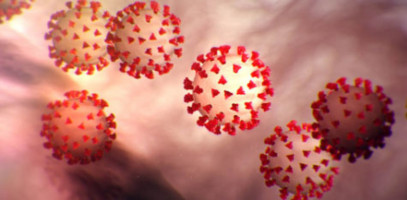
Patients with cancer and a weakened immune system who are treated with immunotherapies tend to fare far worse from COVID-19 than those who haven't received such therapies in the three months before their COVID diagnosis, show findings in a new study by researchers at Dana-Farber Cancer Institute, and across the US, Canada, and Mexico.
Researchers found worse outcomes in both the disease itself as well as the fierce immune response that sometimes accompanies it.
The study, posted online today by the journal JAMA Oncology, also found that immunocompromised patients treated with drug agents other than immunotherapies had more severe COVID than untreated patients, but not to the degree as those receiving immunotherapy.
On the positive side, researchers found that patients treated with immunotherapies – but whose immune systems were healthy – fared no worse from COVID than untreated patients did.
The findings suggest that immunocompromised patients with cancer should be especially careful about avoiding COVID and, if they do contract the disease, should be aggressive about getting treatment, the study authors said.
Patients whose immune systems have not been suppressed, however, can safely receive cancer therapies – immunotherapies or drug agents – without being at additional risk from COVID-19.
"It's well established that COVID-19 disproportionately affects patients with cancer, and there's evidence that patients treated with some types of systemic therapies – which suppress the immune system – often have worse outcomes," said Toni Choueiri, MD, Director of the Lank Centre for Genitourinary Oncology, Dana-Farber, co-senior study author. "This study was done to determine which patients are most at risk for adverse outcomes. We looked specifically at patients treated with immunotherapies, which stimulate the immune system to fight cancer, and those treated with other drugs that suppress the immune system."
Drawing on the COVID-19 and Cancer Consortium (CCC19) registry, researchers analysed data from 12,046 patients with COVID-19 who had a current or past diagnosis of cancer, making it one of the largest data sets to date analysed in relation to patients with COVID-19 and cancer.
The analysis examined whether a suppressed immune system or treatment with immunotherapy was associated with worse outcomes from COVID-19 – with hospitalisation or death from the disease, and with "cytokine storm," a potentially dangerous overreaction of the immune system to infection.
"We found that patients who were both immunocompromised and treated with immunotherapies did much worse than those who didn't receive these therapies," said Chris Labaki, MD, Dana-Farber, co-lead author on the paper.
The other co-lead authors are Ziad Bakouny, MD, MSc, Brigham and Women’s Hospital, and Punita Grover, MD, University of Cincinnati Cancer Center.
"Both cytokine storm and death from COVID were three to four times higher in this group,” said Bakouny. The same trend held true, but to a lesser extent, for patients who were immunocompromised and received some types of systemic treatments. "In this group cytokine storm and death from COVID were two to three times higher than in non-treated patients.”
The findings hold important messages for patients with cancer as well as their physicians, the study authors said. "Patients at high risk for severe COVID should take steps to keep that risk as low as possible: wearing a mask, avoiding crowded places, staying current with vaccines and boosters," researchers said. "High-risk patients who have been exposed to the disease should get tested quickly and, if they test positive, get treated with antibodies or drugs that can reduce the disease's severity."
"When we counsel patients about treatment, it's important that we discuss the benefits and risks of treatment with systemic therapies with respect to COVID-19,” said Choueiri, who is also on the CCC19 steering committee. Dana-Farber is a founding CCC19 institution. "The results of this study can help us know what to expect."
Source: Dana-Farber Cancer Institute
The World Cancer Declaration recognises that to make major reductions in premature deaths, innovative education and training opportunities for healthcare workers in all disciplines of cancer control need to improve significantly.
ecancer plays a critical part in improving access to education for medical professionals.
Every day we help doctors, nurses, patients and their advocates to further their knowledge and improve the quality of care. Please make a donation to support our ongoing work.
Thank you for your support.